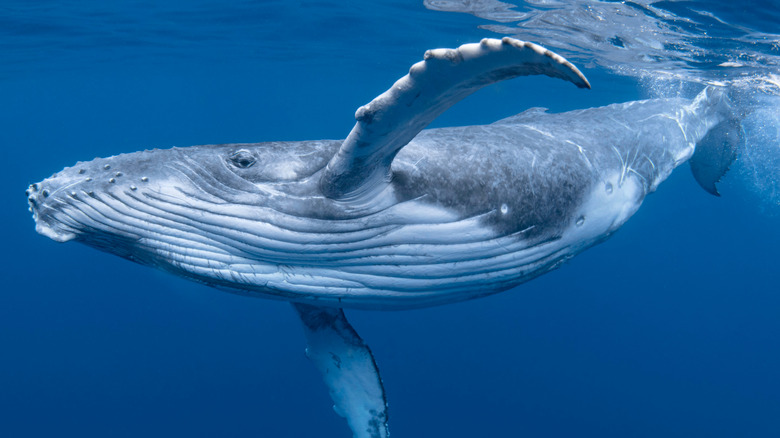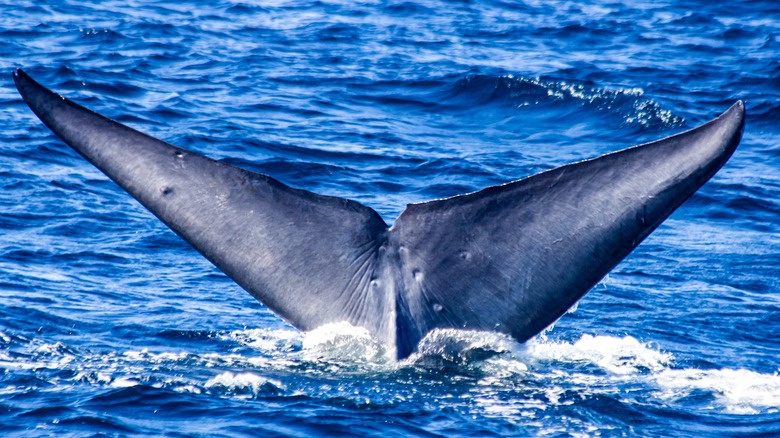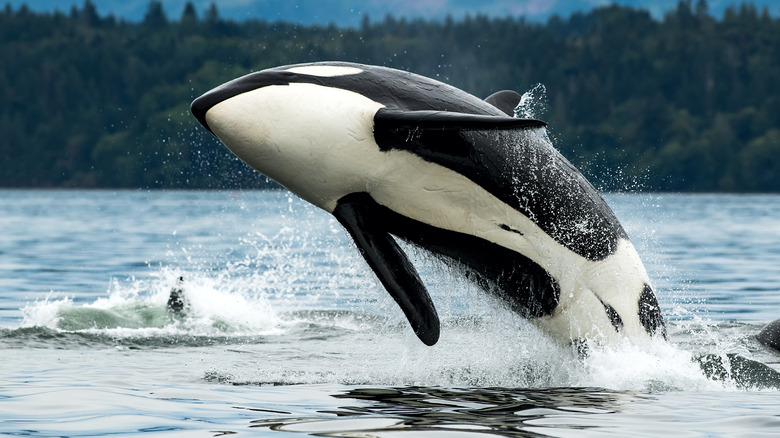Do Whales Really Have Regional Accents?
Regional accents are fascinating. The United Kingdom, for one, is a melting pot of different accents, and from regions that are geographically relatively close to each other too, according to Education First. From the accent itself to terms and slang that have their root in certain areas, there's just so much variation.
Oftentimes, we don't realize that a phrase we've grown up with is a 'local' expression that would be completely unfamiliar to visitors or those new to a given area. The thing about humans, though, is that we're social animals. We travel, we embrace, and are embraced by others from all over the world; adapting to a wonderful cultural blend as we do so.
According to BBC News, whales are incredibly social creatures too, and it seems that their intriguing communication sounds differ in particular ways from group to group. With local groups differing slightly in how they "speak." In fact, whales could be considered to have regional accents.
The complex nature of whale relationships
In September 2015, Maurício Cantor et al published the paper "Multilevel animal societies can emerge from cultural transmission" (via Nature Communications). It states that sperm whales have complicated social relationships and form clans, and the codas (those intriguing strings of sound) with which they communicate are all similar.
According to the study, "learned vocalizations are hypothesized to underlay the partition of sperm whales into clans." Essentially, some groups of whales that communicate in the same way band together, and thus perhaps they make the same vocalizations in subtly different ways. It's easy to see, in these terms, how whales could develop distinct accents.
Dalhousie University's, "Whales have accents and regional dialects: Biologists interpret the language of sperm whales," (via Science Daily) states that whale calves chatter away in no discernible language as human babies do, while they learn to speak. The adult whales appear to teach them what the study deems to be "family repertoire." Again, then, unique groups could very well have different dialects for this reason.
Accents passed through generations
Other whale species also have regional dialects, as New Scientist states. In 1990, Vancouver Public Aquarium curator of marine mammals, John Ford, studied the vocalizations of two killer whale communities: one group of three pods (families), and a larger group of sixteen pods. The two groups' territories bordered each other, the larger group in the region of Alaska and the smaller in the south, toward Puget Sound.
By means of a hydrophone in the water, Ford was able to record the communication of the whales, and determined that around twelve different calls were made by each pod. Very few of them were commonly used by more than one family group, and so he believes that these regional accents could have been passed on by previous generations. Ford considered that there could even be a whale ancestor they originate from.
Killer whale dialects, according to Ford, differ from the common clicking sounds emitted by these magnificent creatures when they are using their sonar to navigate. Whales' accents, it seems, are used when they are communicating with each other, and that communication appears to be much more nuanced than some may have thought.


